[Cognitive Neuroscience] #1: Introduction & History
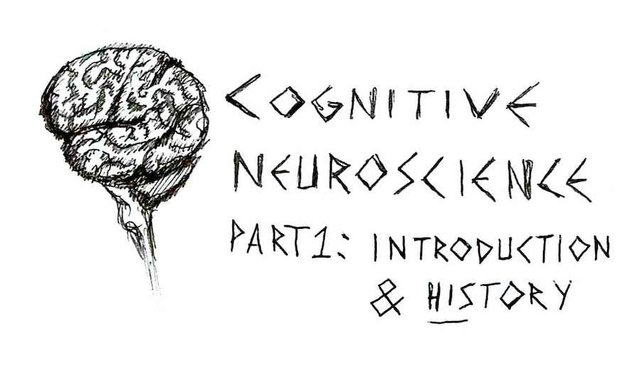
I’ve decided to do a series on Cognitive Neuroscience. It will be a fun activity for me, and it will also be useful review. So, to begin understanding this topic it is essential to ask how we define cognitive fields of Psychology and Neuroscience, and how they came to be. I think it is important to begin with the Psychological basis, which gave birth to Neuroscience.
What is Cognitive Psychology?
This is the branch of psychology that essentially focuses on cognition, A.K.A. “thinking” processes. This includes various aspects of cognition, e.g. perception, attention, memory, language, problem solving and intelligence. While these traits are not uniquely human, the ability to apply them in a higher order sense is, from what we know, a characteristic only humans have. An example of this “higher-order” application can be seen using a classic Psychology experiment. The experiment goes as follows:
A set of letters are presented to the participant on a screen.

Afterward, the participant will be shown a series of letters (presented one at a time) and will have to decide whether or not they were shown on the original slide.
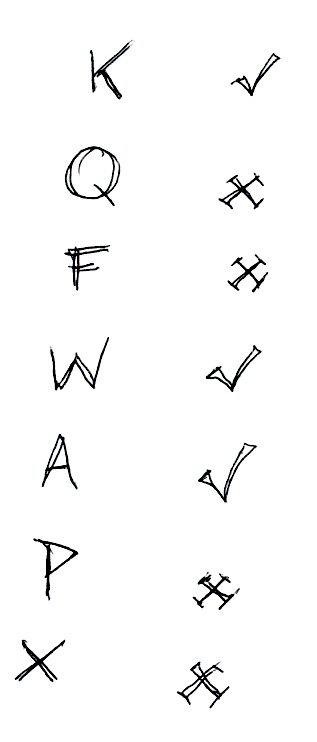
The result of this experiment typically presents itself in a Sternberg Paradigm.
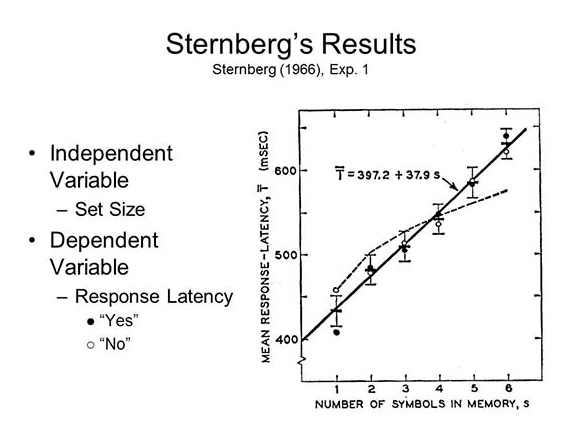
So, what does this even tell us about cognitive psychology? Experiments such as these allow us to observe the underlying cognitive processes on performance tasks. In this particular instance, these processes are hypothesized constructs. As humans, we make sense of the our observable behavior (in this case being response time) by channeling cognitive entities (e.g. working memory, serial scanning, or decision making).
In short, cognitive psychology measures behavior; however it only does so in that it derives insight into hypothesized mental processes. It aims to break cognition down into subprocesses. But how do we even know that these cognitive entities exist? Particularly because we have very little ability to measure them reliably.

What is Cognitive Neuroscience?
The subbranch of psychological science that has seen the greatest advancements within the last two decades is - you guessed it - cognitive neuroscience. The goal of cognitive neuroscience is to explain mental processes in terms of brain function. We reach for this goal with the understanding that if a cognitive process exists, it should be measurable in brain function. This approach allows us to single out individual differences in cognitive abilities, which can be related to differences in brain function. As a result, local insight is provided when addressing clinical symptoms that occur from brain dysfunction. Additional brain information brought about by neuroscientific studies on cognition can be used to decipher truth behind standing cognitive theories.
Cognitive neuroscience allows us to research questions that the human race has had for a very long time. Who knows, maybe even animals have wondered as well. It is also important to note that while today’s research approaches may appear sophisticated, they will inevitably become outdated.
In Cognitive neuroscience, we must ask ourselves if we can truly trust our senses. There are many combating beliefs in this field which makes it very unstable and ever evolving. Do you agree with empiricism, where our knowledge ascends from our senses? Or maybe you agree more along the lines of rationalism, which suggests we have innate knowledge. To put these questions in perspective, a more modern approach to this conceptualizing this dilemma may be a study of genetic influence on cognition, or the mere existence of universal grammar.

Historical Contributors
Pythagoras (570-495 BC)
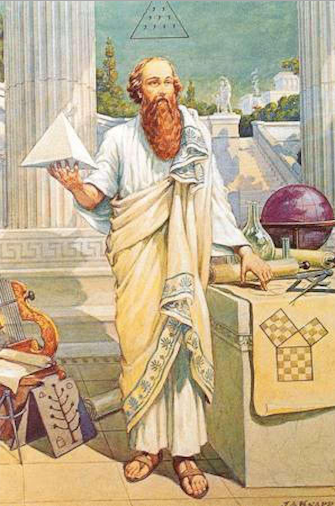
Plato (427-347 BC)

Aristotle (384-323 BC)

Descartes (1596-1650)

The British Empiricists
John Locke (1632–1704); George Berkeley (1685–1753); David Hume (1711–1776)
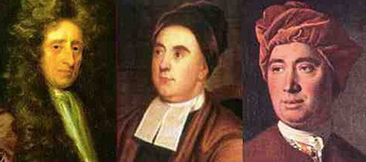
Unlike Plato and Descartes, the British Empiricists rejected the idea of innate knowledge - instead they preached that the contents of the mind are products of experience. It was this conceptualization that lead to a transition; we no longer associated the mind as a form of deity, instead we re-conceptualized humanity and the explanations of natural mechanisms. It was this British Empirical movement that conjured Behavioralism, which is now one of the largest schools of psychological thought. This is an unfortunate outcome in my opinion; behavioralists tend to disassociate from the workings of the inner mind, basing their conclusions purely on observation, often with no regard to the possibility that free will exists.
“But to have only the law of nature for his rule.”~ Locke
“Few men think; yet all have opinions.”~ Berkeley
“The corruption of the best things gives rise to the worst.” ~ Hume
Charles Darwin (1809-1882)
The world was viewed as an arranged hierarchy with God at the apex for centuries, where people were perceived as God-like critters spawning all throughout the land. This was the consensus until Darwin, who came to develop evolutionary theory. We all should know what this theory entails; variation and natural selection are the stem of all modification processes. Darwin was the first with an audience to suggest that the human mind was indeed apart of the natural world.

Hi samoasilk,
This is a nice choice of topic, and you made a pretty fair attempt at it. But I would like to give you some pieces of advice to keep handy with, so as to create a more quality STEM post.
Cheers and thanks

A pretty fair attempt, @samminator?... Thanks for the comments... First of all, as a STEM guy, I would expect that you would know that these historical facts don’t require citations... these are facts with no direct source, and are common knowledge. There is no further reading. If readers are interested in knowing more about the basic stuff here, they can perform a simple search in any engine of their choice. There is no book or article I used as a reference here, so I can’t provide anyone with that sort of outlet. As for the image thing, thanks for the guideline link.
Just to clarify what @samminator wanted to say, it is not a matter of requiring or requesting citations. It is a matter of providing references to potentially interested readers on places where to get additional information on the topic you address.
But as a matter of fact, no one is enforcing you to do anything. You do as you want, at the end of the day. However, if you want SteemSTEM to support your work, well, you should do this google exercise you suggest by yourself, for your readers, and indicate the results in your post.
PS: In some ways, you should have got information on the topic you wrote about from somewhere, shouldn't you? There must thus be some sources you could share.
I get where you’re coming from. This post is a product of personal notes taken from courses I took over the years. Want me to just scan my notebook and post it here instead? The way you guys are commenting here has left me very discouraged to continue writing, this is not the community I expected here on steemit.
Note that I cannot talk for anyone else but me. I think I have been polite, not aggressive, and I have tried to be constructive. I don't understand where is the problem there.
We of course don't want you to scan lecture notes. However, there are ways to make extra information easily reachable, aren't there? This is all we require to offer people @steemstem support (plus a few other points).
Anyways, I think this discussion is over. I made my point, you made yours. Let's move on.
Of course they do. Otherwise I could just say, there was no holocaust and you have to treat it as a historical fact, since I don't have to cite any sources for my claim.
The holocaust is still ongoing.. the numbers once tattooed on skin are now store in a database... Please .. You don't know if the holocaust happened like it did or if it even did.. Everything we've been told is a lie..
I have done research for many years, this is not a research paper. The fact that Pythagoras had anything to do with mathematics does not require citations. You don’t see people citing the haulocaust, do you? Maybe you do, but come on, don’t bring an example like that into the equation.
Lol, except you lived through time to witness history first-hand. But if not, then the info must have been gotten from a source and that would require credit.
It wouldn't hurt to add references, would it?
Well, it was just an advice.
It wasn’t my intent to start beef with you. I figured you would gather that when I said historical facts I was insinuating historical common knowledge with a consensus. Just like evolution, for example. We don’t need to cite Darwin when speaking of it. Either way, I really do appreciate your time spent reading this post. I hope you’ll stick around to read onward.
100% pay to @samoasilk from @samminator ($0.26)
https://steemworld.org/@samminator
This was very well done. Thank you!
flat earth
Congratulations @samoasilk! You have completed the following achievement on Steemit and have been rewarded with new badge(s) :
Click on the badge to view your Board of Honor.
If you no longer want to receive notifications, reply to this comment with the word
STOPTo support your work, I also upvoted your post!